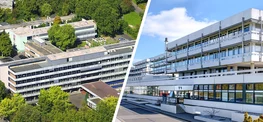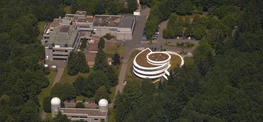The Max Planck Institute for Multidisciplinary Sciences is a leading international research institute of exceptional scientific breadth. With more than 40 research groups and some 1,000 employees from over 50 nations, it is the largest institute of the Max Planck Society.
The research group for Magnetic Resonance Signal Enhancement headed by Stefan Glöggler is inviting applications for a Postdoctoral Fellow (f/m/d) - Development of hyperpolarized low field MRI.
Enhancing nuclear magnetic resonance signals by over 10,000-fold via hyperpolarization techniques has opened up new opportunities for molecular imaging. The NMR Signal Enhancement Group aims at exploring the properties of signal enhanced molecules with specifically long storage times (longitudinal relaxations) at low magnetic fields (100 mT) and investigate ways how to image them. Different physics properties of molecules at these low field promise to pave pathways for new molecule imaging approaches with simple and portable devices.
The candidate should have a strong background in physics, engineering, physical chemistry or related disciplines and experience in nuclear magnetic resonance and spin physics.
What you will be doing
- Developing and testing low field MRI equipment (e.g. coils) for use at 100 mT
- Investigating signal-enhanced molecules and their biochemical conversion
- Developing and testing pulse sequences to image the enhanced molecules at low field
What we offer
- Physics with biomedical and biochemical application
- High-impact emerging field of research
- State of the art equipment and infrastructure
- Interesting and varied work in an interdisciplinary environment
- A wide range of offers to help you balance work and family life:
On-campus kindergarten places including vacation care, parent-child offices, etc. - Further training opportunities and language courses
- Spacious cafeteria with a wide range of meals plus an espresso bar
- Health management: free fitness and yoga room, sports groups, course offerings for a "moving break"
- Initiatives for sustainability and a green environment with a new biotope
Position details
Payment and benefits are based on the German public service pay scale (TVöD Bund) guidelines. The position should be filled as soon as possible.
The Max Planck Society is committed to increasing the number of individuals with disabilities in its workforce and therefore encourages applications from such qualified individuals. The Max Planck Society strives for gender and diversity equality. We welcome applications from all backgrounds.
Application
Applications will be reviewed on a rolling basis until the positions are filled. Please submit your application including cover letter (explaining background and motivation), CV, transcripts, publication record and two contacts for letters of reference preferably via E-Mail as a single PDF file to ausschreibung56-22@mpinat.mpg.de.
Max Planck Institute for Multidisciplinary Sciences
Research Group “NMR Signal Enhancement”
Dr. Stefan Glöggler
Am Faßberg 11
37077 Göttingen
Germany




